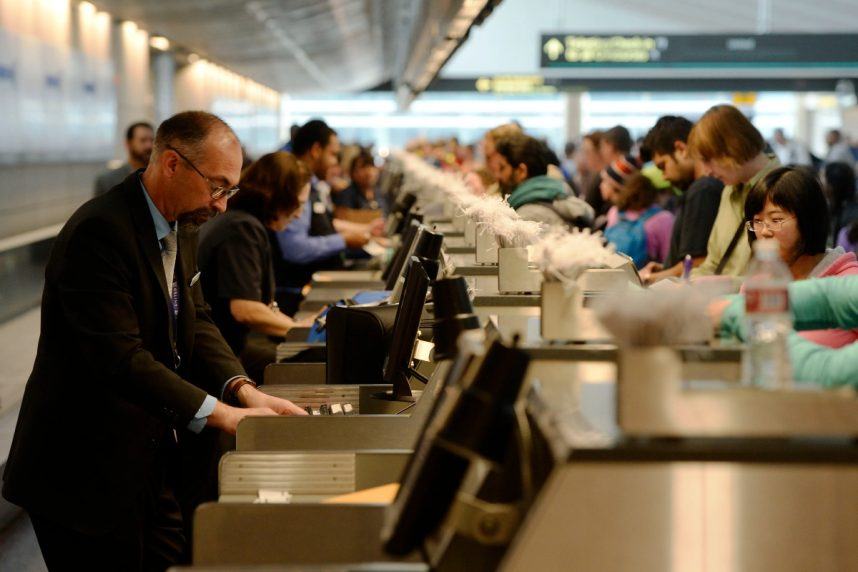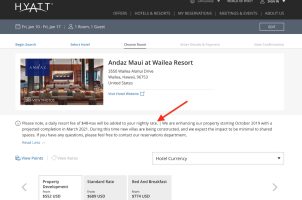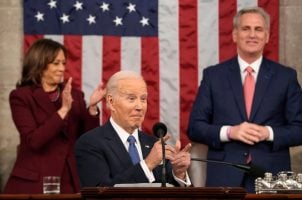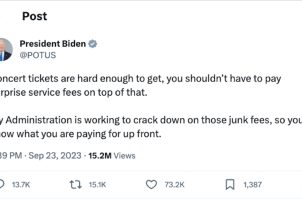Airlines Sue Biden Administration Over Requirement to Disclose Fees Up Front
Posted on: May 14, 2024, 01:14h.
Last updated on: May 14, 2024, 02:02h.
Several major airlines in the United States have filed a lawsuit against the federal government and President Joe Biden’s administration after the Transportation Department altered requirements for how airfare prices are advertised online.

The US Department of Transportation (USDOT) last month issued new pricing requirements for commercial airlines and online ticketing websites. The updated rules require that all costs and possible add-on fees be clearly displayed at the beginning of the consumer’s booking process.
The regulatory overhaul is part of the president’s mission to rid the marketplace of so-called “junk fees” — costs that are tacked on toward the end of the reservation’s completion. Junk fees extend to the US gaming industry, as casino resorts have faced criticism for adding on resort fees and other charges after a customer inputs their credit card or payment information.
A lobbying group representing the airline interests of American, Delta, United, JetBlue, Hawaiian, and Alaska is challenging the newly implemented USDOT rule in a Louisiana federal court.
Lawsuit Claims Government Overreach
The lawsuit brought by Airlines for America against the federal government says the pricing rules are “arbitrary, capricious, an abuse of discretion, and otherwise contrary to law.”
The USDOT now requires that all baggage fees and cancelation and change fees be disclosed up front on the first webpage the consumer lands on with a quoted price. Airlines for America says the rule will confuse consumers and result in fewer sales as displayed prices could be much higher than what the traveler would actually pay if they have status, don’t check a bag, or don’t need to change a reservation.
Airlines go to great lengths to make their customers knowledgeable about these fees,” Airlines for America said. “The ancillary fee rule by the Department of Transportation will greatly confuse consumers who will be inundated with information that will only serve to complicate the buying process.”
The Transportation Department said in a statement it “will vigorously defend” the new rule to protect “people from hidden junk fees.” The federal government believes the refreshed regulation could save consumers over a half-billion dollars annually.
Casino Industry Impact
Biden has also repeatedly issued his disdain for casino resort fees. On the Las Vegas Strip, nightly resort fees are as high as $50 a night plus tax.
Resort fees cover daily amenities like fitness center access, news services, boarding pass printing, Wi-Fi, and local room calling. Many consumers say there’s little value received and the resort fees are simply a way for casinos to get more for the room while advertising a reduced rate upfront.
MGM Resorts, the largest casino operator on the Strip, has taken a proactive approach in clearly displaying the resort fee at the start of the booking progression.
For a two-night stay this weekend at the Bellagio, the MGM website shows a nightly rate of $599. Just below that rate is the disclosure of a $50 daily resort fee that takes the nightly cost to $649 before taxes.
Caesars Entertainment hasn’t followed suit.
A room at Caesars Palace for the same two nights this weekend is advertised at $699 a night. Though there is an asterisk with fine print reading, “Excludes fees and taxes,” the casino’s nightly $49.95 resort fee isn’t displayed until further clicking through the reservation website.
Related News Articles
President Biden’s Resort Fee Crackdown Opposed by American Gaming Association
Nevada Congressional Delegation Defends Casino Resort Fees
Most Popular
Mirage Las Vegas Demolition to Start Next Week, Atrium a Goner
Where All the Mirage Relics Will Go
Most Commented
-
Bally’s Facing Five Months of Daily Demolition for Chicago Casino
— June 18, 2024 — 12 Comments -
Chicago Pension Mess Highlights Need for Bally’s Casino
— July 2, 2024 — 5 Comments
















No comments yet